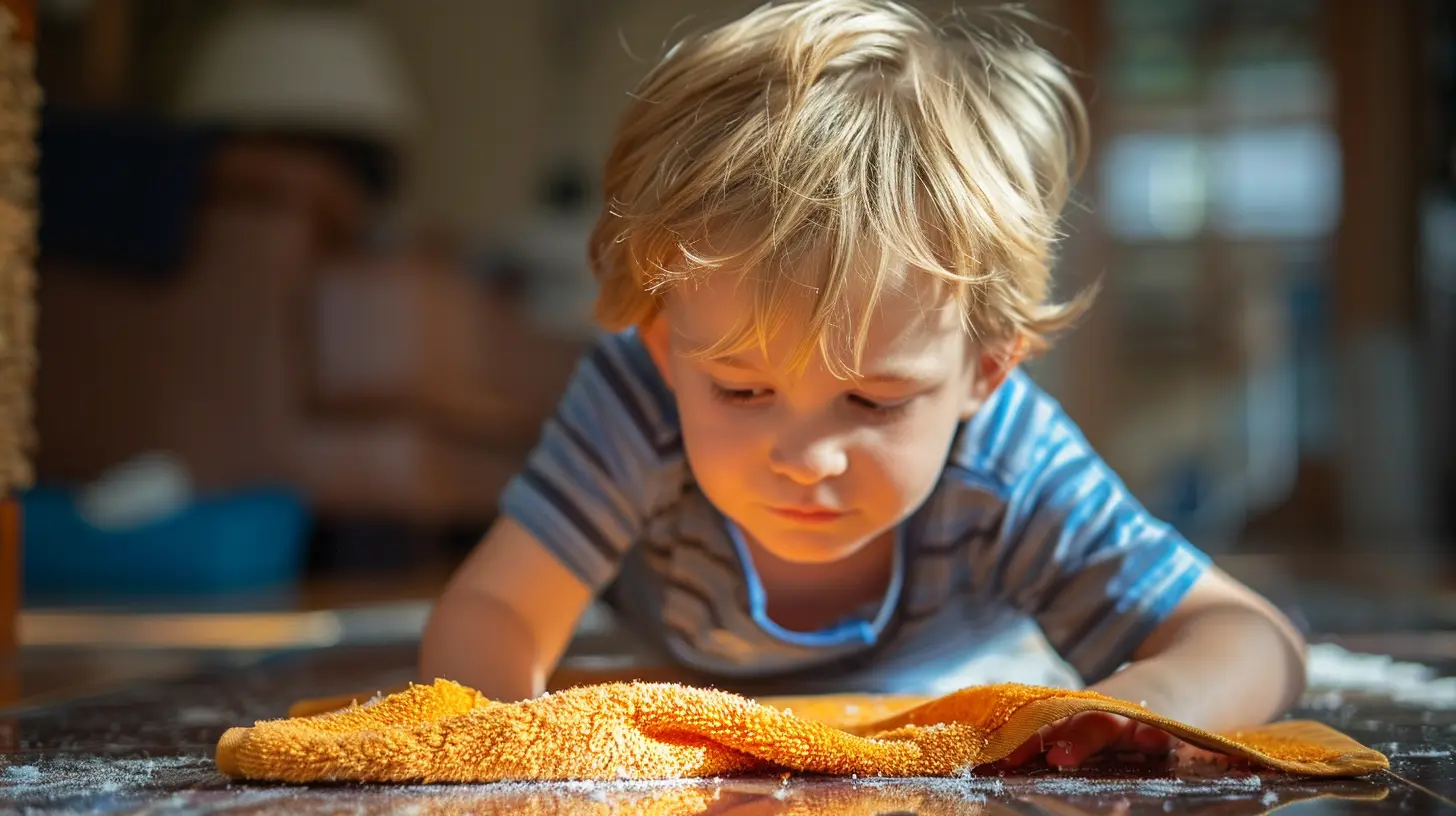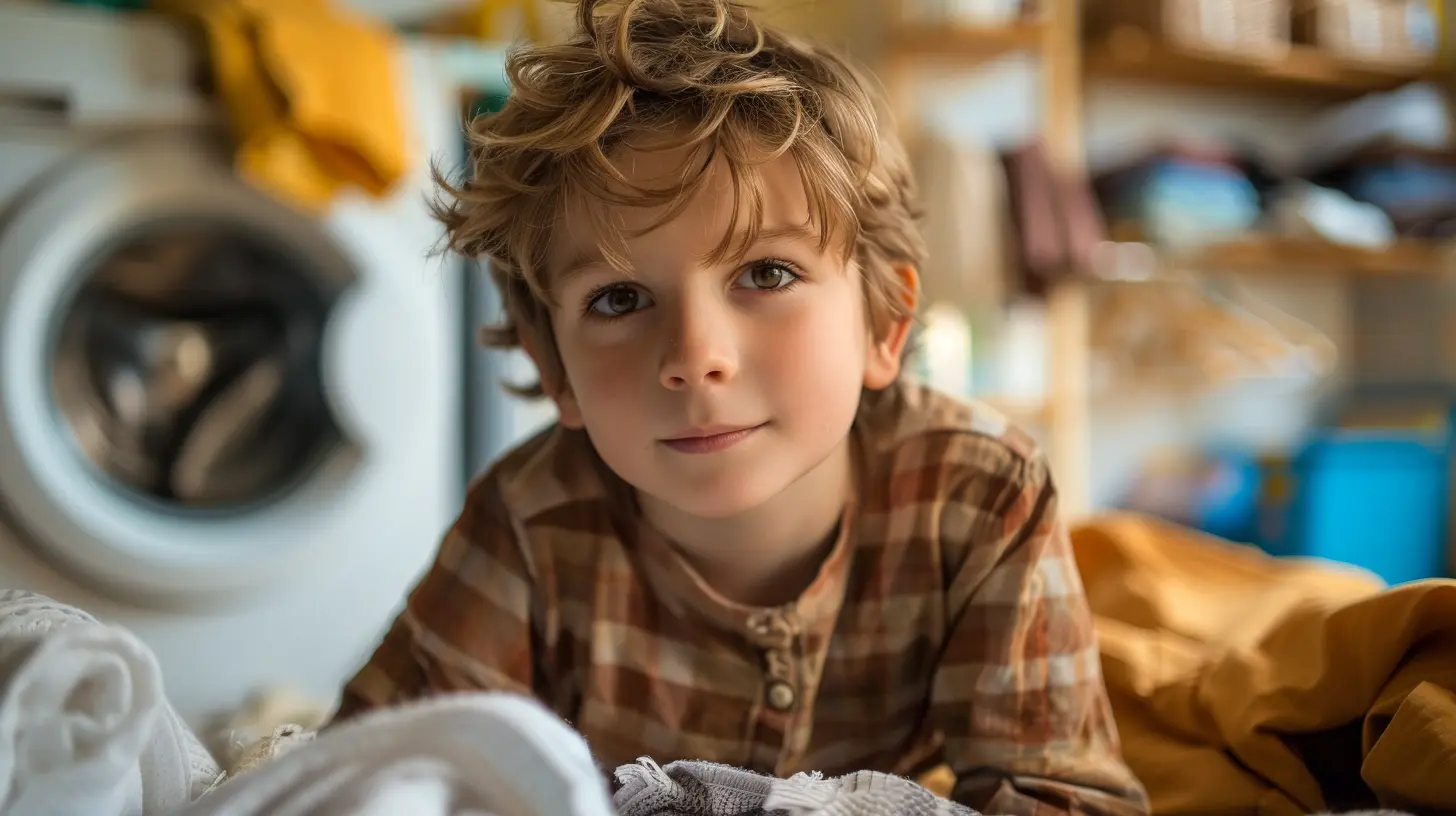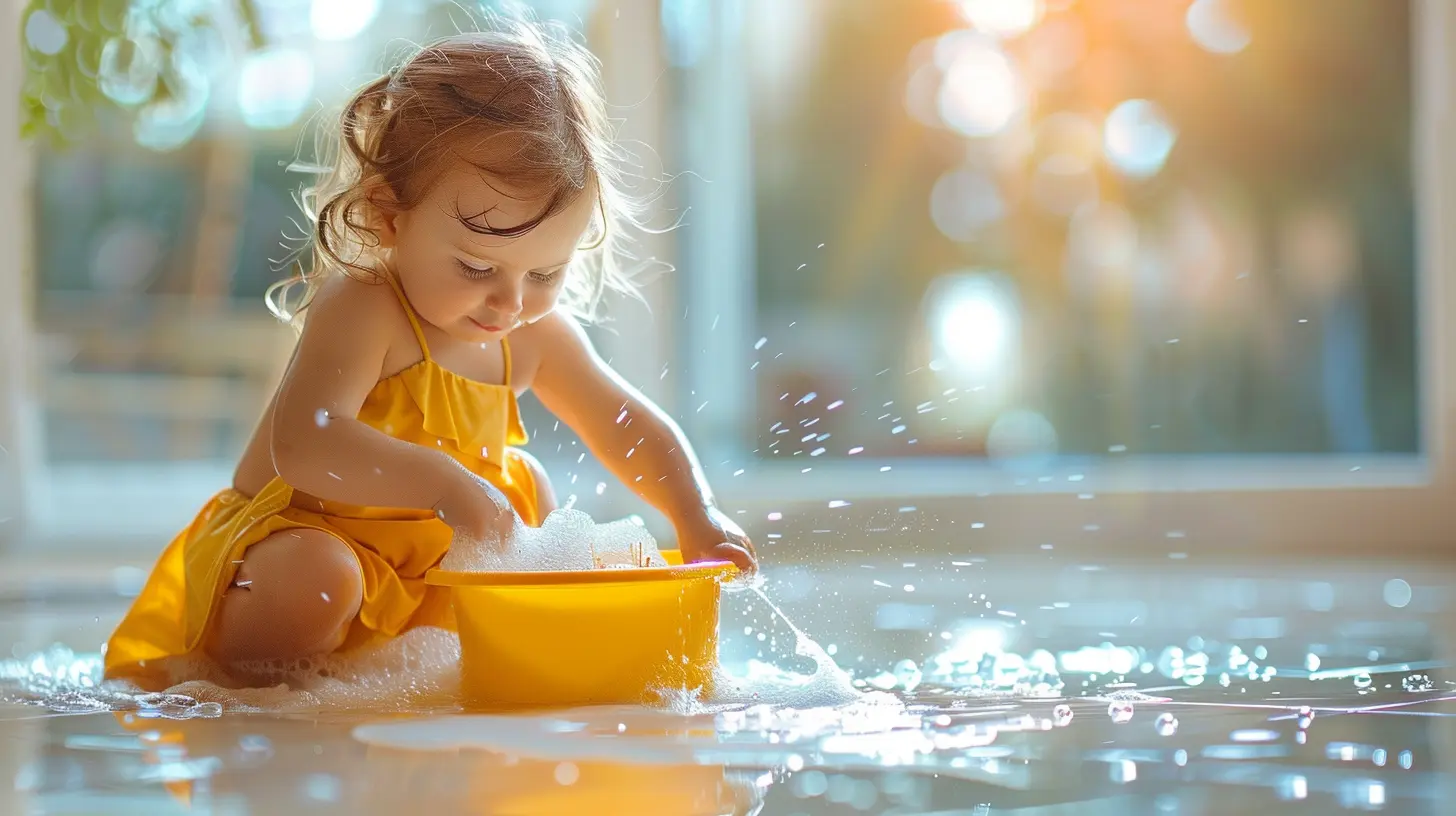Chores as Life Lessons: Preparing Your Child for Adulthood
27 June 2025
Let’s be honest—chores aren’t exactly on anyone’s favorite-things-to-do list, especially not for kids. But ask yourself this: what’s the real value behind scrubbing the bathroom sink or mowing the front lawn? Is it just about cleanliness and keeping your house in order? Or is there something more meaningful woven into those mundane tasks?
The truth is, chores are so much more than just household duties. They’re powerful life lessons in disguise, shaping your child into a responsible, capable, and self-sufficient adult. In fact, giving your child age-appropriate chores is one of the best ways to prepare them for the big, exciting (and sometimes terrifying) world of adulthood. So, grab a cup of coffee and let’s chat about how these everyday tasks can teach lifelong skills.
Why Chores Matter (Yes, Even for Toddlers!)
You might be thinking, “My toddler can barely put on their socks—it’s way too early for chores.” But here’s the deal: it's not about expecting perfection. It's about building habits, encouraging effort, and slowly introducing the idea that everyone contributes to the team—aka, the family.Even small, simple tasks like putting toys back in a bin or helping wipe the table lay down the foundation for responsibility. It’s like planting seeds—you're not going to see a grown tree overnight, but you're giving it what it needs to grow.
The Big Picture: Chores as Life Skills
Let’s zoom out for a second. When kids do chores, they’re learning:- Time management (juggling homework, soccer practice, and setting the table)
- Accountability (knowing they’re expected to finish the job)
- Work ethic (understanding the value of effort)
- Teamwork (realizing they’re part of something bigger)
- Independence (being capable of taking care of themselves)
These aren’t just "nice to have" skills—they're must-haves once your child moves out and starts living on their own. Think of chores like tiny trial runs for adulthood.
Age-Appropriate Chores: Setting the Stage for Success
It can be tricky to figure out what chores are suitable for each age. The goal isn’t to overwhelm your child—it’s to set them up for success with tasks that match their abilities.Toddlers (Ages 2–4)
Start small and keep it fun. At this age, it’s more about participation than perfection.- Putting toys in baskets
- Throwing away trash
- Helping feed pets
- Wiping spills
Tip: Turn it into a game. A timer or upbeat song can turn cleanup time into fun time.
Preschoolers (Ages 4–6)
Kids love to help when it feels like play and when they feel "grown-up."- Making the bed (messy is okay!)
- Watering plants
- Setting the table
- Matching socks from the laundry
Encourage their effort and avoid critiquing—it’s about trying, not mastery.
Elementary School Kids (Ages 7–10)
They’re becoming more capable and can handle multi-step tasks.- Packing their own lunch
- Folding laundry
- Taking out trash
- Loading/unloading the dishwasher
At this point, it’s good to start introducing consistency. Maybe they take on a chore every Tuesday and Thursday, so it becomes routine.
Preteens and Teens (11+)
Now you’re building the transition to real-world independence.- Cooking simple meals
- Mowing the lawn
- Grocery shopping with a list
- Managing their own laundry
This stage is where they really start to feel responsible and capable. You're no longer just telling them what to do—you're trusting them to do it with minimal supervision.
Lessons Hidden in the Mess
Let’s peel back the curtain on some deeper lessons kids pick up from doing chores. It’s not just about the task—it’s about what happens beneath the surface.Responsibility and Ownership
When your child knows they’re in charge of something—whether it’s walking the dog or cleaning their room—they’re learning to take ownership. And that’s big. They begin to connect actions with outcomes.Didn’t feed the pet? The dog’s bowl is empty. Didn’t do their laundry? No clean socks for school. Life’s little consequences are sometimes the best teachers.
Pride in a Job Well Done
There’s something incredibly satisfying about standing back and looking at a swept porch or a tidy bookshelf and thinking, “I did that.” Let your kids feel that. It helps build confidence and a sense of accomplishment that no gold star can match.The Value of Hard Work
You can talk about hard work all you want, but chores let kids experience it firsthand. Scraping ice off the windshield or washing a sink full of dishes makes it real. It’s not about exploiting your kid—it’s about showing them that effort leads to results.
A Family Team Mentality: We’re In This Together
One of the biggest perks of doing chores isn’t even about the chores—it’s about the bond it creates.When everyone pitches in, kids see that they're not just a passenger in the family; they’re a co-pilot. They feel needed, valued, and capable. And when you work side-by-side on a Saturday morning to clean out the garage or bake a week’s worth of lunches, you build not just skills—but memories.
Teaching Empathy Through Helping
When kids help out, they begin to see life from someone else’s shoes. They understand Mom gets tired. They notice that Dad’s been hauling the trash out every week without help.That’s empathy and awareness in action—and that’s priceless.
Tips to Make Chores Less of a Battle
Let’s be real: most kids don’t wake up raring to dust the shelves. Here’s how to make the process smoother (and less whiny):1. Be Clear and Specific
Instead of “Clean your room,” try: “Put your books back on the shelf and make your bed.” Vague directions often lead to vague efforts.2. Use a Chore Chart
Some kids love checking off boxes! A visual reminder can make chores feel more like a game and less like a punishment.3. Avoid Using Chores as Punishment
If you only assign chores when kids misbehave, they’ll start associating them with negativity. Instead, frame them as part of family life—because they are.4. Offer Choices
Let them choose between two tasks: “Would you rather vacuum the living room or unload the dishwasher?” Giving control often reduces resistance.5. Praise Effort, Not Just Outcome
“You did a great job sticking with the laundry, even though it took a while” goes a long way toward motivation.What Happens When They Don’t Have Chores?
It might seem easier to let your kids off the hook—it’s quicker to fold the laundry yourself or clean the table while they play. But over time, doing everything for your child can backfire.You may raise a child who doesn’t know how to take care of themselves. Worse, they might grow into adults who feel entitled or ill-equipped to cope with the demands of life.
You’re not being “mean” by assigning chores; you’re investing in their future.
Chores in the Real World: What Kids Will Thank You For Later
Picture this: your child heads off to college or into their first apartment. They actually know how to cook more than instant noodles, they do their laundry without ending up with pink underwear, and they respect their space enough to keep it clean.You’ve given them a head start—and they’ll appreciate it, even if they don’t say it right away.
Employers Notice, Too
Believe it or not, the skills learned through household chores can translate into the workplace. Responsibility, consistency, and time management all shine during job interviews. Your teen might not list “vacuuming” on their résumé, but the character behind that chore speaks volumes.Final Thoughts: Don’t Aim for Perfection
Remember, it’s not about spotless floors or perfectly folded towels. It’s about progress, consistency, and growth. Kids will mess up chores. They might forget. They might grumble.That’s okay.
Stay patient, be encouraging, and remind yourself that every dish washed and every trash bag taken out is a step toward a capable, independent adult.
Let’s raise kids who don’t just know how to survive in the real world—but thrive in it.
all images in this post were generated using AI tools
Category:
Chores For KidsAuthor:

Austin Wilcox
Discussion
rate this article
2 comments
Matteo Fry
Responsibility shapes resilient futures.
November 13, 2025 at 4:37 AM

Austin Wilcox
Thank you! Chores indeed instill responsibility, laying the foundation for resilience and independence in adulthood.
Thorne Romero
Chores: the best way to teach kids life skills and maybe even avoid future therapy bills! Who knew scrubbing toilets could lead to adulting prowess? Just remember, if they argue about it now, they’ll definitely be back for the ‘free’ laundry service later!
July 4, 2025 at 4:31 AM

Austin Wilcox
Absolutely! Chores instill essential life skills and responsibility, paving the way for independent adults. Plus, they might just appreciate the value of hard work later on!


